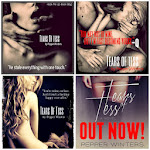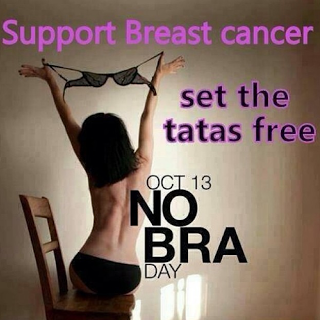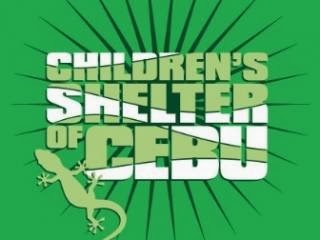I love writing action sequences. As a martial arts instructor and a longtime fan of action films and novels, writing fast, hard-hitting exchanges comes naturally. There’s a fine balance between describing the details of the action and keeping the plot rolling, and I’ve found a pace that I hope is as exciting to read as it is for me to write.
What type of writing do you struggle with?
Writing good dialogue takes effort. It doesn’t come as easily to me as action scenes tend to. And there’s a whole lot of dialogue in Dead & Godless. Trying to capture philosophical debates in language that is both witty and natural was a big challenge, and a rewarding one to overcome.
Do you find it hard to share your work?
I’m not the shy or timid type. If my work is terrible, I want to know about it, though it certainly helps when the criticism is constructive. As such, I really enjoy sharing my work. Every week I attend a write night, in which several friends and myself meet up to share some of our recent material. It’s great to get honest feedback from people you can trust to tell you both the strengths and weaknesses of your story.
How do you work through self-doubts and fear?
I was an entrepreneur before I was a writer, so doubts and fears are nothing new to me. Once you’ve fallen, picked yourself back up and realized that life goes on, failure loses its bite. You can fail a hundred times, but it only takes a single big success to make all your efforts worthwhile, so why stop trying?
Why do you write?
I’ve always been drawn to creative pursuits, whether its creating digital art (I attended art school for a time), building websites or launching businesses. I’m not happy unless I’m creating something. I love writing in particular because it’s such a pure art. In many creative fields – such as films or video games – it takes hundreds of people to produce a final product. That product’s vision often feels “designed by committee” as a result. But with novels, a single artist can express his or her vision without compromise. That’s incredibly appealing to me.
Which do you find more difficult: writing or marketing?
Definitely marketing, even though I probably have more experience with marketing than with writing fiction. It comes down to passion. My passion is for story telling. Even when it’s difficult, writing seldom feels like an outright chore, as does much of the marketing process (although doing interviews can actually be quite enjoyable ^_^).
How did you develop your writing?
Like most authors, my writing was largely shaped by my reading, but there was definitely an evolution of sorts. At first, I was a “just start typing” writer. I didn’t plan or put together outlines. I simply let the story take me wherever it led. After mixed results with that approach, I gave in and started outlining the key points in my plots, while still leaving some room for the unplanned. This middle road has proven to best suit my writing style.
Where do you get your inspiration from?
All the art I consume finds a place to dwell in my head, but it seldom stays there. Novels, films, music and even games – I draw inspiration from whatever strikes me as atmospheric or powerful. In terms of philosophical inspiration, much of that comes from classic Christian thinkers such as C.S. Lewis and Blaise Pascal.
How do you write – laptop, pen, paper, in bed, at a desk?
I’ve gone through several laptops now (PCs, I’m not a Mac guy). They’re my preferred writing tools, though I’ll use whatever is at hand if a good sentence comes to me. I especially like to perch my laptop somewhere at chest level, so that I can stand while typing and randomly pace around the room. I feel terribly lazy if I stay sitting in one spot for too long.
How do you feel about self-publishing?
Becoming a self-published author is a lot like starting a business. Thanks to the rise of ebooks, getting your product out there is easier than ever, but getting people to notice is a different story, and it’s only going to get harder as the space grows. I think it’s exciting, but also daunting for writers who just want to write. Being an author isn’t enough. You need to be a marketer.
Have you always enjoyed writing?
I’ve long enjoyed creative writing, but it wasn’t my first love. When I was younger, I was more drawn to the visual arts. I filled my notebooks with sketches of characters from comics and cartoons. As reading grew to replace those interests in the art I consumed, it likewise came to be the art that I wanted to create.
Do you plan to publish more books?
I hope so! There are other stories I’d like to tell, and while I don’t have an exact time frame for my next book, I’m looking forward to diving into it. At the moment, however, I’m mostly focused on promoting Dead & Godless.
Where do you get support from? Do you have friends in the industry?
I’ve met some fellow writers since publishing Dead & Godless (largely thanks to communities such as goodreads), but my support has come mostly from my family and friends. My sister Christine is an avid reader who helped with structural editing, and the story wouldn’t be as polished without the feedback I received from my friends at Write Night (our writing club).
It is vital to get exposure and target the right readers for your writing, tell us about your marketing campaign?
Targeting makes a huge difference. Dead & Godless is Christian fiction, so it clearly has a specific audience. I wrote it partly in response to hearing people ask “What book should I get my teenage son/daughter/grandchild to help them keep the faith?” Like most new authors without a real budget, I’ve used free book offers to drum up some initial readers, posting on Christian community sites to get the word out when I run giveaways.
How often do you write? And when do you write?
Once I’ve started a book, I try to stay disciplined. That usually means committing to at least one page a day, every day. Early afternoon is my most productive time, and I’ve been fortunate enough to have that time free thanks to the flexibility of my online business. I’m not a fast writer. It always amazes me to hear about authors who pump out a book (that isn’t terrible) in a matter of weeks. That’s impressive, but the fact is you don’t need to be fast. Write a little something every day, and eventually you’ll have a book.
Sometimes it’s so hard to keep at it. What keeps you going?
Writing, like exercising, can feel like a grueling task when you’re not doing it. However, once you find the motivation to start, you often end up enjoying yourself. There’s also the excitement of sharing your work, the satisfaction of hammering out a passage that really captures the vision in your head, and the sense of accomplishment that comes when you’re finally holding a finished book in your hands. If you’re diligent (and maybe a little lucky), you might even make a dime or two.
Have you developed a specific writing style?
There is a distinct style to my writing, though it’s nothing as pronounced as the style of, say, a Cormac McCarthy or a George R.R. Martin. My style is descriptive but fast. I tend to keep paragraphs and chapters on the shorter side, use obscure vocabulary sparingly, and keep a certain flow to my sentences (it may sound weird, but I don’t like using sentences with the same number of commas back-to-back). I employ the occasional cliffhanger, but avoid ending books with them.
What is your greatest strength as a writer?
I’m no C.S. Lewis, but I do tend to have a knack for taking complex philosophical arguments and repackaging them into words that you don’t have to be a philosopher to understand. Keeping my work easy to read without diluting the truth behind it is always a top priority.
Have you ever had writer’s block? If so, what do you do about it?
While writing Dead & Godless, frustrating bouts of writer’s block hit me on quite a few occasions, but I’ve found several techniques that tend to help me overcome it. The first is to skip ahead to a different scene when a particular passage is giving you trouble. You can always come back to it later with a clear head. If it’s really not working, consider cutting the scene from your story altogether. Maybe it’s not working because it’s not meant to be. When all else fails, just get away from the computer for a while. Take a walk or a drive. Sometimes the perfect words come to you only once you stop trying to force them.
When outspoken atheist Corwin Holiday dies an untimely but heroic death, he’s assigned a chain-smoking, alcoholic angel as his defense attorney in the trial to decide the fate of his soul.
Today many cast Christianity aside, not in favor of another faith, but in favor of no faith. We go off to school or out into the world, and we learn that reality is godless and that free thinking means secular thinking. But must faith entail an end to asking questions? Should not the Author of Reason be able to answer the challenge of reason?
Dead & Godless is a smart and suspenseful afterlife adventure that explores the roots of truth, justice and courage. In these pages awaits a quest that spans universes, where the stakes are higher than life and death, and where Christianity’s sharp edges aren’t shied away from, because we’re not called to be nice. We’re called to be heroes.
Buy Now @ Amazon
Genre - Christian Fiction
Rating – PG-13
More details about the author
Connect with Donald J. Amodeo on Twitter
















0 comments:
Post a Comment